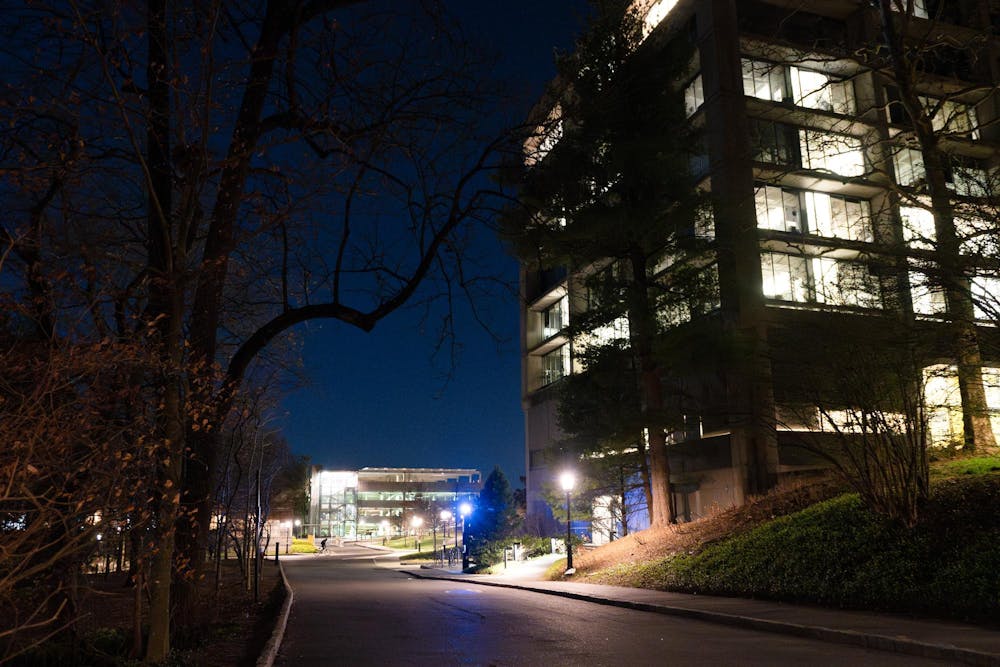Congratulations! You, an undergraduate, were just hired to work as a research assistant this summer. You’ll receive a weekly stipend of $730 and work a 40-hour week for an average pay of $18.25 an hour. Great! There’s just one catch: For every hour you work, Princeton will charge you $12.40/hour — 68 percent of your wages — to live in the dorms and eat on the required meal plan. You’ll walk away with just $5.85 for every hour of work.
Adjusted for inflation, that’s in line with the federal minimum wage — from 1938.
As a result, students who rely on their wages for their livelihoods — especially first-generation, low-income, and middle-class students — may be forced to forgo valuable summer research opportunities at Princeton and instead opt for higher-paying jobs elsewhere, reinforcing these communities’ underrepresentation in academia. It’s time that Princeton fixes that, so these opportunities can truly become “accessible to all undergraduates.” And the solution is easy: Princeton should simply charge less for summer housing.
The oft-cited rule of thumb is to spend about 30 percent of one’s income on rent, and in 2023, the average American spent about 10 percent of their pre-tax income on food — totaling to 40 percent of income on rent and food. Princeton, meanwhile, asks its student researchers to spend 68% of their income, not to live in a house and eat heartily, but to live in a dorm room and eat two meals a day. If you want three meals a day, you could pay $596/week, or 82% of your stipend.
Here’s the kicker: some stipends are conditioned on living on campus, so if you instead opted to live in a sublet in town, you wouldn’t receive one at all.
While Princeton tries to sell the $5.85 you’ll have left over after they take their two-thirds cut as “a supplement to help offset miscellaneous expenses,” this ignores the very real, non-trivial expenses students face. That is: many students aren’t working to have their miscellaneous expenses covered, but rather their necessary ones.
More than 12 percent of students at four-year institutions provide financial support to their families. For these students and others, the difference between the $5.85 they’d effectively make from doing research here and the $15 they could make as a barista while living at home could make all the difference. And students who have to turn down a research opportunity are greatly disadvantaged if they want to attend graduate school and enter academia. Princeton students who have to prioritize making a living wage, then, may continue to be shut out of the field.
Lots of Princetonians want to go to graduate school: it was the largest post-graduate field for the Class of 2024. But 68 percent of students need to make a certain amount of money over the summer, according to Western Illinois Associate Professor Megan Owens and Illinois State Professor Michael Mulvaney, and inadequate pay for research positions may narrow their paths to attend graduate school. These students should not have to choose between their futures and their finances. They should be able to do both.

The income that students earn from employment is not “miscellaneous.” So Princeton must decide: Does it want its students — all of them, not only those who can afford it — to be able to work on the important research happening at Princeton, or be forced to go home?
If I were them, I’d want them to be able to stay. To do that, the University should lower the price of summer housing to a reasonable level. Other schools have more sensible prices: Davidson College, for example, charges students just $1,390 for nine weeks of summer housing, not including food. (Princeton’s total is $4,464 for both.)
If Princeton only matched that, despite having a per-student endowment six times the size of Davidson’s, the University’s cut of researchers’ hourly wage would be just $3.86. They might take another $2.70 for food, but even still, a student researcher would take home $11.69 — a substantial improvement over the current policy. (At 36%, that’s also far closer to the average American’s budget for housing and food.)
But Princeton could do even better than that and work to set the national precedent as a leader in undergraduate research. It should raise take-home pay to $15 an hour, or higher; expand access to humanities and social sciences research by creating more opportunities through OURSIP or establishing programs in more departments than what’s currently available; and centralize more research opportunities in a common database to drive up participation and reduce competitiveness.

To even begin to talk about participation, though, Princeton must first make research an equitable opportunity for students from all backgrounds, like many other aspects of the undergraduate experience. Standing up for the future of academia means making undergraduate research a feasible summer employment opportunity.
Isaac Barsoum ’28 is a first-year prospective Politics major from Charlotte, N.C., who thinks you should take home more money for your research. His column, “A Princeton for All,” runs every other Thursday. You can read his column here. You can reach him at itbarsoum[at]princeton.edu.








